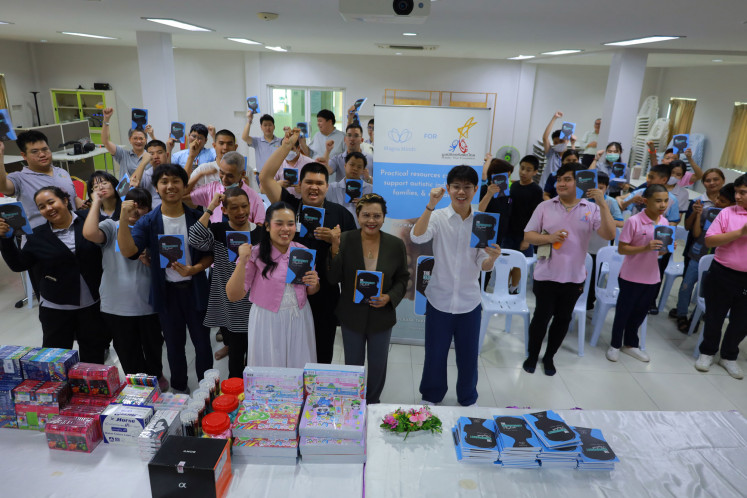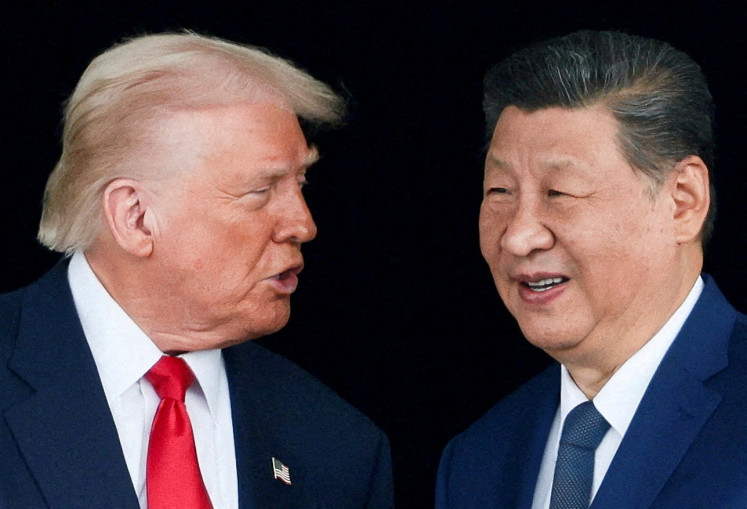Popular Reads
Top Results
Can't find what you're looking for?
View all search resultsPopular Reads
Top Results
Can't find what you're looking for?
View all search resultsChina's factory growth picks up as demand improves, Ukraine crisis raises risks
Manufacturing PMI registered 50.2 in February, up a touch from 50.1 in January.
Change text size
Gift Premium Articles
to Anyone
C
hina's factory activity expanded slightly in February as new orders improved, pointing to some resilience in the world's second-largest economy even as downward pressure builds and Russia's invasion of Ukraine heightens global uncertainty.
The official manufacturing Purchasing Manager's Index (PMI) registered 50.2 in February, remaining above the 50-point mark, which separates growth from contraction, and picking up a touch from 50.1 in January, data from the National Bureau of Statistics (NBS) showed on Tuesday.
Analysts had expected the PMI to ease to 49.9.
China's economy rebounded strongly from a pandemic-induced slump in 2020, though momentum started to flag in the summer of last year, as a debt crisis in the property market and strict anti-virus measures hit consumer confidence and spending.
Policymakers have vowed to stabilise growth this year and all eyes are on the annual meeting of its top legislative body that begins on March 5 during which the government will unveil economic targets for the year and likely more stimulus measures.
Russia's invasion of Ukraine has raised fresh risks for the global economy, adding to months-long strains for China's factories from worldwide supply chain snags.
"In February, PMI stayed above 50, reinforcing expectations that the economy is on track for a recovery, likely due to pro-growth policies rolled out by the government," said Zhang Liqun, analyst at China Federation of Logistics & Purchasing.
Zhang said that demand was still weak and inflationary pressures are building. "China should continue to implement various policies to expand domestic demand and boost government investment... and to ensure the supply of raw materials and stabilise prices."
New orders grew for the first time since August last year, as demand improved following the Lunar New Year holidays. Sectors such as pharmaceutical, special equipment and auto industries expanded quickly last month.
However, the growth in production slowed, with a sub-index standing at 50.4, compared with 50.9 in January.
"New orders returned to the expansionary territory, suggesting that manufacturing market demand has been quickly released since the holiday," said Zhao Qinghe, senior statistician at the NBS, in a statement accompanying the data release.
"After the Spring Festival, manufacturing activities have gradually returned to normal."
Inflation, supply chain headwinds
Inflationary pressures continued to build. A gauge for raw material prices stood at the highest in four months.
A separate private PMI survey also showed China's factory activity returned to growth last month, buoyed by expanding new orders.
The property sector may provide some support this year.
A Reuters poll showed the property market will rebound later in the year as authorities loosen some of the financing curbs on property developers and some localities relax buying requirements, bolstering buyer sentiment. China's new home prices rose for the first time in January since September.
Indeed, an index of construction activity stood at 57.6 in February, up from 55.4 the previous month.
Still, the overall momentum is hostage to persistent headwinds from various sources, some analysts say.
"The latest surveys suggest that the pace of economic growth edged up slightly in February," Julian Evans-Pritchard, senior China economist at Capital Economics.
"But it remains weak amid continued supply shortages, higher imported inflation and persistent disruption to services activity."
China is still battling sporadic COVID-19 outbreaks across the country, while imported cases from Hong Kong surged. That had dented consumer sentiment.
A survey on China's sprawling services sector on Tuesday showed growth picking up slightly in February.
China's official composite PMI, which combined manufacturing and services, stood at 51.2 in February compared with 50.1 in January.










